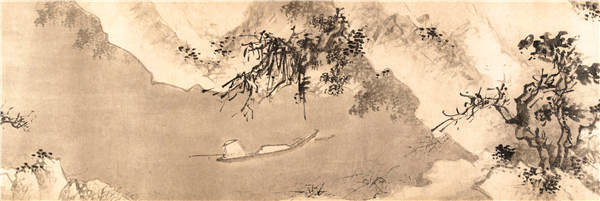

One example is by the 17th-century calligrapher and poet Chen Hongshou, whose rendition of the theme puts a scholar-gentleman amidst a green-tinted mountain vista, trailed by a servant boy carrying the jug of wine requisite for "unlocking creativity", to quote Scheier-Dolberg. The fruit of that creativity, most likely to come in the form of writing, stood the chance of inspiring more than a few other works of art executed in the same spirit.
"Painting and literature-and by extension calligraphy-were inseparable," said Wang Yimin, an expert on ancient Chinese painting and calligraphy at the Palace Museum in Beijing. "And one can only expect to truly understand and appreciate the phenomenon of 'literati painting' in ancient China with that in mind."
The Palace Museum has grown out of the Forbidden City, a sprawling royal palace in which successive Chinese emperors lived between the 15th century and the early 20th century. It is where they presided over their court and hoarded their enormous royal collections of art, of which literati painting, in true reflection of its dominant cultural position, forms a major part.
Wang, calling Chen "a link in a winding artistic tradition", said literati painting can be partly traced to a time when China's educated elite first sought active engagement with politics. He was thinking about the Spring and Autumn Period (770-476 BC) and the subsequent Warring States Period (475-221 BC), the end of which marked the beginning of a mighty, unified China.
"Apart from the kings and generals, one group of people who populate this dramatic chapter of Chinese history are the thinkers or scholar-lobbyists," Wang said. "Not content with merely recording their thoughts for posterity, they journeyed from one kingdom to another, and would only stop when assured of the listening ear of a decision-maker, i.e. the king."
While the cutthroat rivalry between the kingdoms, which were constantly at war, worked in the interests of the lobbyists, those who succeeded were still few and far between. Perpetually on the road with an increasing sense of frustration, those who failed to make an impression remind Wang of others whose ambitions were thwarted by the country's elaborate testing system, installed by the rulers of a unified China to select officials and fill its gargantuan bureaucracy.